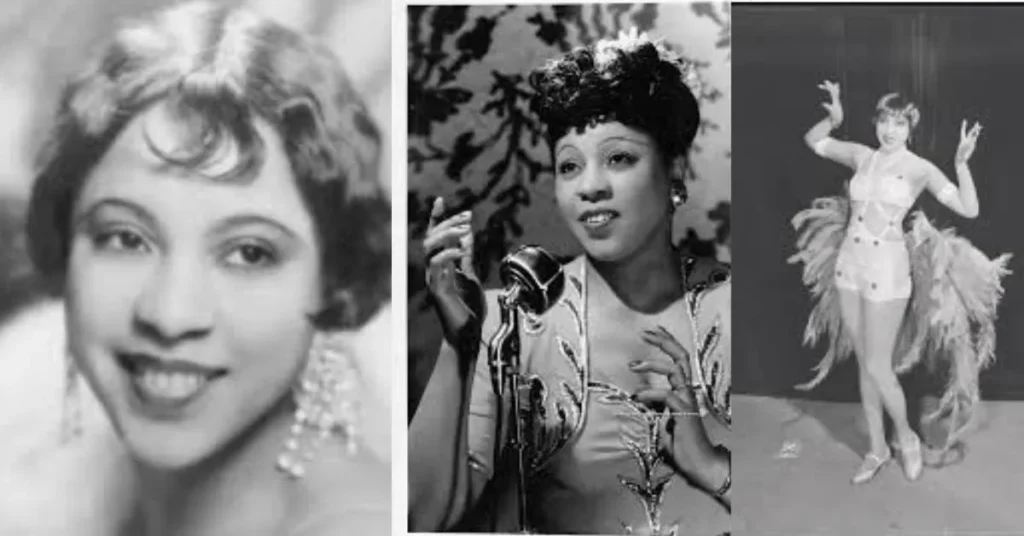Adelaide Hall was more than just a singer; she was a trailblazer who carved a unique niche in the realms of jazz and cabaret. Her career, spanning several decades, was marked by groundbreaking performances, distinctive vocal techniques, and an unyielding spirit that broke racial and gender barriers. Let’s delve into the life and legacy of this extraordinary artist.
Early Life and Background
Born on October 20, 1901, in Brooklyn, New York, Adelaide Hall grew up in a musically inclined family. Her father, Arthur William Hall, was a music teacher, which greatly influenced her early interest in music. From a young age, Adelaide was exposed to the vibrant music scene of early 20th-century America, which ignited her passion for performance.
Career Beginnings
Adelaide’s journey into the world of performance began in her teenage years. She started performing in Harlem’s bustling nightclub scene, where her talent quickly caught the attention of influential figures in the music industry. Her early performances were characterized by a unique blend of jazz and blues, setting her apart from her contemporaries.
Rise to Fame
The turning point in Adelaide Hall’s career came with her collaboration with Duke Ellington. Her 1927 recording of “Creole Love Call” with Ellington’s orchestra became an instant hit, catapulting her to fame. This song showcased her innovative use of wordless vocals, a technique that became one of her trademarks.
Jazz and Cabaret Contributions
Adelaide Hall’s contributions to jazz and cabaret are immeasurable. She was known for her sophisticated phrasing and impeccable timing, which brought a new level of artistry to her performances. Her ability to infuse songs with emotion and her distinctive scat singing influenced many future jazz artists.
Broadway and Stage Performances
Adelaide was not confined to nightclubs and recording studios; she also made a significant impact on Broadway. She starred in several major productions, including “Chocolate Kiddies” and “Blackbirds of 1928.” Her stage presence and charisma made her a favorite among theater audiences, further solidifying her status as a versatile performer.
International Success
Adelaide Hall’s talent knew no borders. She embarked on international tours, performing in Europe, South America, and beyond. Her performances were met with acclaim, and she played a crucial role in popularizing jazz music worldwide. Her move to Paris in the late 1920s and subsequent performances across Europe cemented her status as an international star.
Pioneering Moments
Adelaide Hall was a pioneer in many ways. She was one of the first black women to perform on Broadway and to gain international fame in an era of rampant racial discrimination. Her success opened doors for other black artists and challenged the status quo, making her a key figure in the fight for racial equality in the arts.
Personal Life
Adelaide Hall married Bert Hicks, a British sailor, in 1924. The couple shared a deep bond and supported each other’s careers. Despite the challenges of their interracial marriage in a racially divided society, they remained devoted partners. Adelaide faced personal struggles, including the loss of her mother, but she channeled her emotions into her music, creating powerful and moving performances.
Later Career and Legacy
Even as musical trends evolved, Adelaide Hall remained relevant. She continued to perform and record music well into her later years, demonstrating her versatility and enduring talent. Her influence can be seen in the works of countless jazz and cabaret artists who followed in her footsteps.
Impact on Future Generations
Adelaide Hall’s impact extends beyond her own performances. She mentored younger artists and inspired a new generation of musicians. Her innovative techniques and fearless approach to music left an indelible mark on the jazz and cabaret scenes, ensuring her legacy would endure.
Honors and Awards
Throughout her career, Adelaide Hall received numerous accolades and honors. She was celebrated for her contributions to music and her role in breaking down racial barriers. Posthumously, she has been honored with inductions into various halls of fame and commemorations that recognize her lasting impact on the arts.
Cultural Significance
Adelaide Hall played a significant role in the Harlem Renaissance, a cultural movement that celebrated black artistic expression. Her performances and recordings were a testament to the richness of African American culture, and she remains an important figure in the history of American music.
Challenges and Overcoming Adversity
Adelaide Hall’s journey was not without its challenges. She faced significant racial and gender discrimination throughout her career. However, her talent and determination allowed her to overcome these obstacles and pave the way for future generations of artists.
Conclusion
Adelaide Hall’s life and career are a testament to her remarkable talent, resilience, and pioneering spirit. She left an indelible mark on the worlds of jazz and cabaret, breaking barriers and setting new standards of excellence. Her legacy continues to inspire and influence musicians and performers around the world.
FAQs
1. When was Adelaide Hall born?
Adelaide Hall was born on October 20, 1901.
2. What are some of her most famous songs?
Some of Adelaide Hall’s most famous songs include “Creole Love Call,” “I Can’t Give You Anything But Love,” and “This Time It’s Love.”
3. How did she influence jazz music?
Adelaide Hall influenced jazz music through her innovative vocal techniques, particularly her use of wordless vocals and scat singing, which became integral to the genre.
4. What were some of her notable achievements?
Adelaide Hall’s notable achievements include her groundbreaking performances on Broadway, her international tours, and her role in breaking racial barriers in the music industry.
5. How is she remembered today?
Adelaide Hall is remembered as a pioneering jazz and cabaret artist whose contributions to music and her efforts in advancing racial equality have left a lasting legacy.







